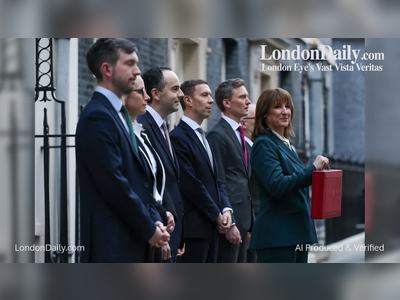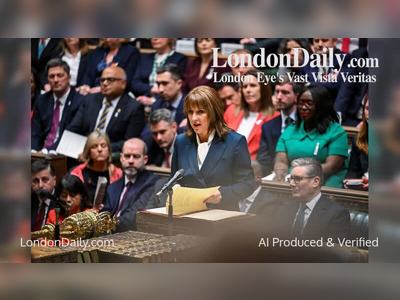UK to Raise Online Betting Taxes by £1.1 Billion Under New Budget — Firms Warn of Fallout
Chancellor Reeves confirms remote-gaming and online betting duties will rise sharply from 2026, triggering market shock in gambling sector
The United Kingdom government has announced steep increases in taxes on online gambling, in a move expected to raise an additional £1.1 billion a year by 2029–30 and hit major betting operators hard.
The measures — confirmed by Chancellor Rachel Reeves — raise the Remote Gaming Duty (RGD) from 21 percent to 40 percent beginning in April 2026, and increase the general betting duty on online sports wagers from 15 percent to 25 percent from April 2027. Traditional high-street bookmakers, bingo halls and horse-racing bets are largely spared, underscoring the government’s focus on digital gambling.
Shares tumbled across the UK gambling industry following the announcement: firms including Entain, Evoke and Flutter Entertainment saw valuations fall by up to 19 percent within hours.
Operators have warned the tax hike may force job cuts, reduce reinvestment in sport sponsorships, and accelerate a shift of gamblers toward unregulated offshore platforms.
The sector expressed particular concern over the impact on regulated firms, arguing the changes would undermine legitimate businesses while doing little to curb illicit gambling.
The government framed the tax increases as a necessary step to address the social harms associated with online gambling, such as addiction and financial distress.
Revenue from the higher duties is partially intended to support social welfare measures, including the removal of the two-child benefit cap.
It has also pledged £26 million in new funding to crack down on illegal gambling operations.
The reforms reflect growing pressure in Parliament and from cross-party committees to hold high-volume online operators accountable for the broader societal costs of remote wagering.
Their contribution to the national tax base had already reached several billion pounds, raising questions about fairness and public service funding in the face of rising living costs.
Some MPs have argued the previous duty rate was too light given the shift of gambling from casinos and shops to mobile devices.
Still, industry representatives contend the scale of the tax increase threatens the viability of many businesses, especially smaller operators, and risks accelerating a migration of players to offshore “black-market” sites that carry no regulatory oversight or social safeguards.
Analysts warn that regulatory tightening may reduce revenue for national sports, which rely heavily on gambling sponsorship.
The coming months will test whether the government’s gamble pays off — whether increased revenue and reduced social harm outweigh the economic risks to an industry that currently supports tens of thousands of jobs and contributes substantially to UK tax receipts.
The measures — confirmed by Chancellor Rachel Reeves — raise the Remote Gaming Duty (RGD) from 21 percent to 40 percent beginning in April 2026, and increase the general betting duty on online sports wagers from 15 percent to 25 percent from April 2027. Traditional high-street bookmakers, bingo halls and horse-racing bets are largely spared, underscoring the government’s focus on digital gambling.
Shares tumbled across the UK gambling industry following the announcement: firms including Entain, Evoke and Flutter Entertainment saw valuations fall by up to 19 percent within hours.
Operators have warned the tax hike may force job cuts, reduce reinvestment in sport sponsorships, and accelerate a shift of gamblers toward unregulated offshore platforms.
The sector expressed particular concern over the impact on regulated firms, arguing the changes would undermine legitimate businesses while doing little to curb illicit gambling.
The government framed the tax increases as a necessary step to address the social harms associated with online gambling, such as addiction and financial distress.
Revenue from the higher duties is partially intended to support social welfare measures, including the removal of the two-child benefit cap.
It has also pledged £26 million in new funding to crack down on illegal gambling operations.
The reforms reflect growing pressure in Parliament and from cross-party committees to hold high-volume online operators accountable for the broader societal costs of remote wagering.
Their contribution to the national tax base had already reached several billion pounds, raising questions about fairness and public service funding in the face of rising living costs.
Some MPs have argued the previous duty rate was too light given the shift of gambling from casinos and shops to mobile devices.
Still, industry representatives contend the scale of the tax increase threatens the viability of many businesses, especially smaller operators, and risks accelerating a migration of players to offshore “black-market” sites that carry no regulatory oversight or social safeguards.
Analysts warn that regulatory tightening may reduce revenue for national sports, which rely heavily on gambling sponsorship.
The coming months will test whether the government’s gamble pays off — whether increased revenue and reduced social harm outweigh the economic risks to an industry that currently supports tens of thousands of jobs and contributes substantially to UK tax receipts.










